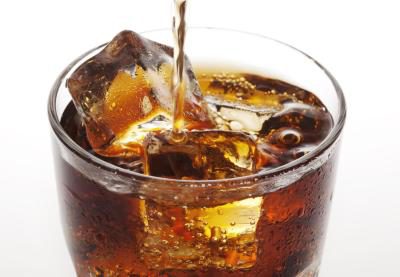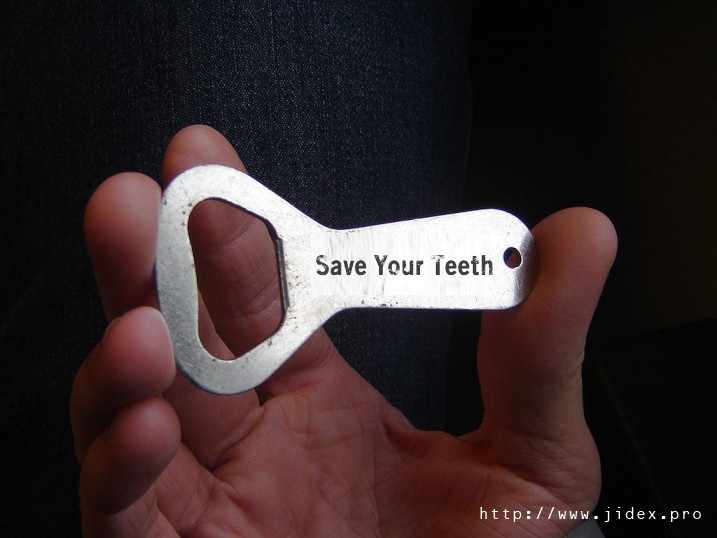Dangers Of Carbonated Drinks - DoroTV Health

Study have revealed that Meetings, birthday parties, anniversary celebrations and most other gatherings, including house openings are incomplete without carbonated drinks.
Did you know? You can comment on this post! Just scroll down
Refrigerators, deep freezers and coolers are empty without them. They come in different colours and flavours: cola, orange, lemon, pine-apple, cream soda, bitter lemon, ginger, peach, etc. Some are sold in glass bottles of various shapes and sizes; yet others come in cans, tetrapacs and plastic bottles. They are labelled soft drinks.
They are predominantly flavoured to be sweet. Some are fortified with malt. Soft drinks are heavily consumed partly because companies promote them vigorously and market them everywhere in stores, restaurants, fuel stations, markets; etc. Companies spend hundreds of millions of naira on media advertising them and other promotional activities, which may involve sports, music, road and street shows, among others.
One worrisome scenario is that companies have cashed in on the fact that Nigerians are gullible and poverty has driven many to gamble and greed to put up false promotional activities. It remains possible that the correlation is due to a third factor: people who lead unhealthy lifestyles might consume more soft drinks. If so, then the association between soft drinks consumption and weight gain could reflect the consequences of consuming soft drinks.
It is interesting to note that experimental evidence to establish the causal role of soft drinks consumption in most examined deteriorating health conditions may suffice. In fact, reviews of experimental evidence suggest that soft drinks consumption does cause weight gain but the microbial effect is often insignificant except for overweight individuals.
One worrisome scenario is that companies have cashed in on the fact that Nigerians are gullible and poverty has driven many to gamble and greed to put up false promotional activities. It remains possible that the correlation is due to a third factor: people who lead unhealthy lifestyles might consume more soft drinks. If so, then the association between soft drinks consumption and weight gain could reflect the consequences of consuming soft drinks.
It is interesting to note that experimental evidence to establish the causal role of soft drinks consumption in most examined deteriorating health conditions may suffice. In fact, reviews of experimental evidence suggest that soft drinks consumption does cause weight gain but the microbial effect is often insignificant except for overweight individuals.
Let me cite some few cases. Indeed, there have been a handful of published reports linking individuals with severe hypokalemia (low potassium levels) to chronic extreme consumption of colas. In recent years, debate on whether high calorie soft drink vending machines should be allowed in schools has been on the rise. Opponents of the soft drink vending machines believe that soft drinks are a significant contributor to so many ailments and weak health conditions. They, in fact, argue that schools have a responsibility to take care of children’s penchant for soft drinks, saying that allowing them easy access to soft drinks within their premises violates that responsibility and social contract with parents.
It is particularly evident that soft drinks taken three times a week can raise the chances of kidney stones. Most importantly, the ingredients used in soft drinks production seldom meet agreed specifications on all major parameters. Even the functional parameters fall short of the minimum requirements, that is, the level of impurities. This has to do with the microbiological status and physical parameters such as colour, particle and size, among others. Perhaps, it would be more easily understood with a few other explanations.
A recent report has demonstrated that some soft drinks contain measurable amounts of alcohol. In fact, in some older preparations, these results from natural fermentation used to build the carbonation. However, modem processes introduce carbon dioxide for carbonation. Even at this, there are still speculations that alcohol might result from the fermentation of sugar in an unsterile environment. It has nonetheless been proven that the consumption of sugar-sweetened soft drinks is associated with obesity, type 2 diabetes, dental cavities and low nutrient levels.
It is particularly evident that soft drinks taken three times a week can raise the chances of kidney stones. Most importantly, the ingredients used in soft drinks production seldom meet agreed specifications on all major parameters. Even the functional parameters fall short of the minimum requirements, that is, the level of impurities. This has to do with the microbiological status and physical parameters such as colour, particle and size, among others. Perhaps, it would be more easily understood with a few other explanations.
A recent report has demonstrated that some soft drinks contain measurable amounts of alcohol. In fact, in some older preparations, these results from natural fermentation used to build the carbonation. However, modem processes introduce carbon dioxide for carbonation. Even at this, there are still speculations that alcohol might result from the fermentation of sugar in an unsterile environment. It has nonetheless been proven that the consumption of sugar-sweetened soft drinks is associated with obesity, type 2 diabetes, dental cavities and low nutrient levels.
Even some experimental studies support a causal role for sugar-sweetened soft drinks in these ailments. Though these have also been challenged by other researchers, the health effects of artificial sweeteners (sodium benzonate) have been researched as a possible cause of DNA damage and hyper-activity. Other substances have further been said to have negative health effects but are present in such small quantities that are unlikely to pose any substantial health risk.
Moreover, the consumption of sugar-sweetened beverage is associated with weight gain and obesity, and changes in behaviour occasioning reduced consumption have proven to help shed weight. Obviously, each soft drink that a child adds to his or her daily consumption is accompanied by an increase in BMI of 0.24kglm2.
It is disheartening to note that in a bid to make more profit, manufacturers of soft drinks have devised several means and ways of pushing people to drink more and more. To this end, they have introduced various methods of encouraging people to be addicted to their products. Some ask people to drink more to enable them win flashy cars, motorcycles, LCD TV sets, generators, etc. including sponsoring them abroad to watch major sporting events such as the World Cup, Premier League matches, and so on. All these are aimed at maximizing profit to the detriment of the gullible people’s health.
Moreover, the consumption of sugar-sweetened beverage is associated with weight gain and obesity, and changes in behaviour occasioning reduced consumption have proven to help shed weight. Obviously, each soft drink that a child adds to his or her daily consumption is accompanied by an increase in BMI of 0.24kglm2.
It is disheartening to note that in a bid to make more profit, manufacturers of soft drinks have devised several means and ways of pushing people to drink more and more. To this end, they have introduced various methods of encouraging people to be addicted to their products. Some ask people to drink more to enable them win flashy cars, motorcycles, LCD TV sets, generators, etc. including sponsoring them abroad to watch major sporting events such as the World Cup, Premier League matches, and so on. All these are aimed at maximizing profit to the detriment of the gullible people’s health.
Let me point out that fizzy drinks, as carbonated drinks are called, are produced by injecting carbon dioxide into the drink at high pressures, usually to help dissolve the carbon ingredients. This high pressure is amassed to help dissolve the large volume of gas in the constituent ingredients, forming too much carbonic acid.
Fizzy drinks are not good for human health as they are highly loaded with empty calories coming from refined can sugar or high fructose com syrup. Many soft drinks are known to contain more than 10 tablespoons of sugar, unless they are fortified. However, most of them do not contain additives such as food coloring, artificial flavoring and preservatives, which some authorities find objectionable.
I believe that children who drink soft drinks flavored with sugar tend to eat much food than those who avoid soft drinks. The reason for this is that sugared drinks cause a rise in insulin that makes adolescents hungrier, fatter and more likely to develop diabetes.
A large number of soft drinks are acidic and some have a PH 3.0 or even lower. This is why dental experts continue to urge people to drink less soft drink, especially between meals to prevent both tooth decay due to excess sugar and dental erosion mainly caused by the acids soft drinks contain.
To avoid these efforts, dentists advise using straw to ensure lack of contact with the teeth. Experts have also warned that frequent consumption of soft drinks put victims at higher risk of kidney stones. This is because phosphoric acid which is a major component of soft drinks reduces citrate content in the urine which the body needs to protect itself from kidney stones formation, and some also contain caffeine, particularly the colas.
Fizzy drinks are not good for human health as they are highly loaded with empty calories coming from refined can sugar or high fructose com syrup. Many soft drinks are known to contain more than 10 tablespoons of sugar, unless they are fortified. However, most of them do not contain additives such as food coloring, artificial flavoring and preservatives, which some authorities find objectionable.
I believe that children who drink soft drinks flavored with sugar tend to eat much food than those who avoid soft drinks. The reason for this is that sugared drinks cause a rise in insulin that makes adolescents hungrier, fatter and more likely to develop diabetes.
A large number of soft drinks are acidic and some have a PH 3.0 or even lower. This is why dental experts continue to urge people to drink less soft drink, especially between meals to prevent both tooth decay due to excess sugar and dental erosion mainly caused by the acids soft drinks contain.
To avoid these efforts, dentists advise using straw to ensure lack of contact with the teeth. Experts have also warned that frequent consumption of soft drinks put victims at higher risk of kidney stones. This is because phosphoric acid which is a major component of soft drinks reduces citrate content in the urine which the body needs to protect itself from kidney stones formation, and some also contain caffeine, particularly the colas.
Methinks that although carbonated soft drinks may taste sweet in the mouth, consumers are advised to drink less of these products, for the sake of their health. I think the carbonated soft drinks are a curse and not a blessing as some are wont to believe.
Article Posted 1 Month ago. You can post your own articles and it will be published for free.
No Registration is required! But we review before publishing! Click here to get started
One Favour Please! Subscribe To Our YouTube Channel!
468k
Cook Amazing Nigerian Dishes, Follow Adorable Kitchen YouTube Channel!
1.1m
Like us on Facebook, Follow on Twitter
React and Comment
Click Here To Hide More Posts Like This
Watch and Download Free Mobile Movies, Read entertainment news and reports, Download music and Upload your own For FREE.
Submit Your Content to be published for you FREE! We thrive on user-submitted content!
But we moderate!

















